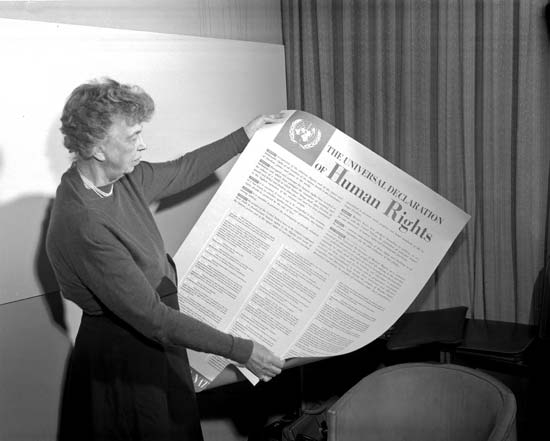In the Independent (UK), Johann Hari asks the question: Why Should I Respect Oppressive Religions?  You know he’s on to a hop topic because the comments section is 10 pages long! In the article, he lays out a distinction between the U.N. Declaration of Human Rights that emphasizes the preservation of freedom for the individual and the Universal Islamic Declaration of Human Rights, a document that subsumes or contextualizes (you pick your favorite term) freedom to the dictates of shar#ah law. Hari quotes a key passage from the Islamic declaration:
You know he’s on to a hop topic because the comments section is 10 pages long! In the article, he lays out a distinction between the U.N. Declaration of Human Rights that emphasizes the preservation of freedom for the individual and the Universal Islamic Declaration of Human Rights, a document that subsumes or contextualizes (you pick your favorite term) freedom to the dictates of shar#ah law. Hari quotes a key passage from the Islamic declaration:
the limits set by the shar#ah [law]. It is not permitted to spread falsehood or disseminate that which involves encouraging abomination or forsaking the Islamic community.
The question I pose to my students and others is whether and/or how the Islamic declaration is “wrong”? The philosopher Alasdair McIntyre claims that liberalism is unable to provide us with a working morality because there is no agreed upon definition of justice. In modernity there exists a protection of rights, but no framework for what should be done with those rights? We are left to ultimately seek out a framework on our own with differing levels of success. Why should the rights in the Universal Declaration be considered absolute? Do we have a ethical or moral imperative to enforce their universality? I encourage you to read the Hari article and reflect upon our obligations if we truly adhere to the UN declaration.

Comments 2
Jonathan Pfeiffer — March 2, 2009
I didn't even know about the Islamic Declaration. In any case, you are correct to observe that the universality of human rights is contestable. The idea that something can be universal is itself far from universal. But recognizing this fact does not get us very far. The key is to imagine what world order should look like if we take human rights for granted or if we do not. What difference does it make when we believe in universal human rights? Most of us agree that the difference is good and therefore, that the idea is good.
Jonathan Pfeiffer — March 2, 2009
By the way, I have no idea how to deal with competing universalisms.